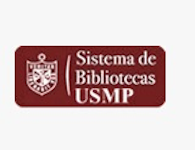From colorectal cancer pattern to the characterization of individuals at risk: picture for genetic research in Latin America

View/Open
Trabajo
(application/pdf: 531.8Kb)
(application/pdf: 531.8Kb)
Date
2019Author(s)
Vaccaro, Carlos Alberto
López-Kostner, Francisco
Della Valle, Adriana
Palmero, Edenir Inez
Rossi, Benedito Mauro
Antelo, Marina
Solano, Angela
Carraro, Dirce Maria
Forones, Nora Manoukian
Bohorquez, Mabel
Lino-Silva, Leonardo S.
Buleje, Jose
Spirandelli, Florencia
Abe-Sandes, Kiyoko
Nascimento, Ivana
Sullcahuaman, Yasser
Sarroca, Carlos
Gonzalez, Maria Laura
Herrando, Alberto Ignacio
Alvarez, Karin
Neffa, Florencia
Galvao, Henrique Camposreis
Esperon, Patricia
Golubicki, Mariano
Cisterna, Daniel
Cardoso, Florencia C.
Torrezan, Giovana Tardin
Aguiar Junior, Samuel
Pimenta, Celia Aparecida Marques
da Cruz Formiga, Maria Nirvana
Santos, Erika
Sa, Caroline U.
Oliveira, Edite P.
Fujita, Ricardo
Spirandelli, Enrique
Jimenez, Geiner
Guindalini, Rodrigo Santa Cruz
de Azevedo, Renata Gondim Meira Velame
Bueno, Larissa Souza Mario
Nogueira, Sonia Tereza dos Santos
Torres Loarte, Mariela
Padron, Jorge
Castro-Mujica, Maria del Carmen
Sanchez del Monte, Julio
Caballero, Carmelo
Muñeton Peña, Carlos Mario
Pinto, Joseph
Barletta-Carrillo, Claudia
Gutiérrez Angulo, Melva
Piñero, Tamara
Montenegro Beltran, Paola
Ashton-Prolla, Patricia
Rodriguez, Yenni
Quispe, Richard
Rossi, Norma Teresa
Martin, Claudia
Chialina, Sergio
Kalfayan, Pablo German
Bazo-Alvarez, Juan Carlos
Recalde Cañete, Alcides
Dominguez-Barrera, Constantino
Nuñez, Lina
Da Silva, Sabrina Daniela
Balavarca, Yesilda
Wernhoff, Patrik
Plazzer, John-Paul
Moller, Pal
Hovig, Eivind
Dominguez-Valentin, Mev
Metadata
Show full item recordAbstract
Colorectal cancer (CRC) is one of the most common cancers in Latin America and the Caribbean, with the highest rates reported for Uruguay, Brazil and Argentina. We provide a global snapshot of the CRC patterns, how screening is performed, and compared/contrasted to the genetic profile of Lynch syndrome (LS) in the region. From the literature, we find that only nine (20%) of the Latin America and the Caribbean countries have developed guidelines for early detection of CRC, and also with a low adherence. We describe a genetic profile of LS, including a total of 2,685 suspected families, where confirmed LS ranged from 8% in Uruguay and Argentina to 60% in Peru. Among confirmed LS, path_MLH1 variants were most commonly identified in Peru (82%), Mexico (80%), Chile (60%), and path_MSH2/EPCAM variants were most frequently identified in Colombia (80%) and Argentina (47%). Path_MSH6 and path_PMS2 variants were less common, but they showed important presence in Brazil (15%) and Chile (10%), respectively. Important differences exist at identifying LS families in Latin American countries, where the spectrum of path_MLH1 and path_MSH2 variants are those most frequently identified. Our findings have an impact on the evaluation of the patients and their relatives at risk for LS, derived from the gene affected. Although the awareness of hereditary cancer and genetic testing has improved in the last decade, it is remains deficient, with 39%–80% of the families not being identified for LS among those who actually met both the clinical criteria for LS and showed MMR deficiency.
Collections
- Artículos [274]
Subject
Publisher
John Wiley & Sons Ltd
Type of research
https://purl.org/pe-repo/renati/type#trabajoDeInvestigacion
Rights
info:eu-repo/semantics/openAccess
Funding
Radium Hospital Foundation (Oslo, Norway)







